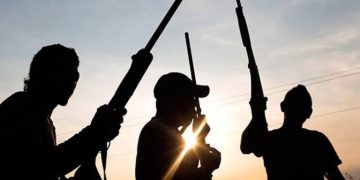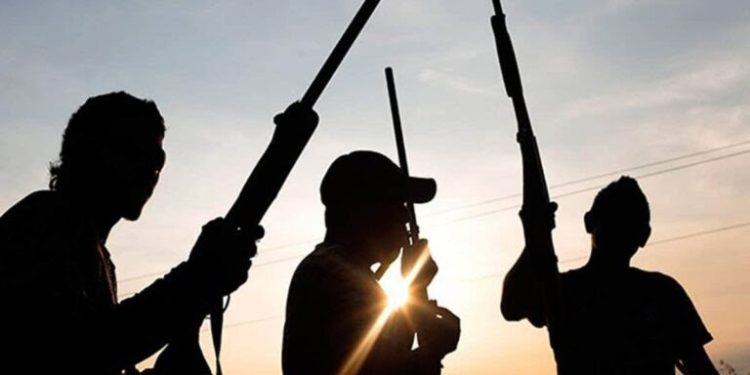Armed attackers struck Kairu community in Zamfara State on Friday, killing at least six people and kidnapping more than 100 others, including women and children, according to local sources.
Zamfara has become a hotspot for violent activities by heavily armed gangs—commonly referred to as bandits—who have carried out widespread abductions and killings in Nigeria’s North-West region. Their actions have disrupted farming and made road travel perilous.
A resident of Kairu, Abubakar Isa, told Reuters by phone that the assailants invaded the community around 10:40 a.m., opening fire indiscriminately. Isa said his wife was among those taken by the attackers.
Confirming the incident, local lawmaker Hamisu Faru stated that “no fewer than 100 people, including women and children,” were abducted. “As I speak to you, they are moving from house to house, taking people,” he said.
Another resident, Mohammed Usman, recounted that the attack lasted nearly two hours, after which the gunmen left with the captives. Many villagers have since fled the area in fear for their lives.
The Zamfara State Police Command has yet to issue a statement on the incident.
Nigerian Military Launches Mental Health Training for Troops in Combat Areas
In a move to prioritize the psychological welfare of its personnel, the Nigerian Armed Forces has commenced a specialized training program focused on stress management, post-traumatic stress disorder (PTSD), and emotional intelligence for soldiers stationed in conflict zones.
The training, titled 2025 First Bi-Annual Sensitisation Programme, was officially launched on Friday at the 8 Division Auditorium in Sokoto. It is aimed at troops involved in Operation FANSAN YAMMA and other internal security operations across the country.
Speaking at the event, Chief of Defence Staff (CDS) General Christopher Musa—represented by Major General Warrah Idris, Director of Innovation and Concept Development at Defence Headquarters—stressed the importance of mental resilience in modern warfare.
“Our soldiers endure not only physical threats but also serious psychological and emotional burdens,” Musa said. “This training gives them tools to handle stress, trauma, and mental fatigue—issues that often persist long after combat.”
He also called for the integration of mental health support into military structures nationwide and emphasized that emotional strength should be treated as a core aspect of personnel development.
Major General Ibikunle Ajose, the General Officer Commanding 8 Division and head of Operation FANSAN YAMMA, echoed these sentiments through his representative, Brigadier General Abubakar Suru. He described the program as both timely and essential for maintaining operational effectiveness.
“This initiative helps our troops identify PTSD symptoms, develop coping mechanisms, and strengthen emotional awareness—key components for both immediate performance and long-term well-being,” Ajose noted.
The programme gathered mental health experts, military psychologists, and service members from various units, fostering a space for education, peer engagement, and psychological preparedness.
Participants are expected to gain practical skills for identifying stressors, managing combat trauma, fostering team cohesion, and maintaining emotional balance.
The initiative signals a broader shift in the military’s approach to personnel care, aligning with President Bola Tinubu’s defense reforms aimed at improving morale, boosting productivity, and ensuring sustainability within the armed forces.















